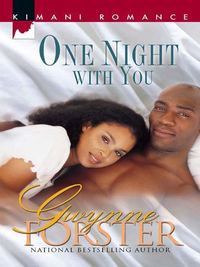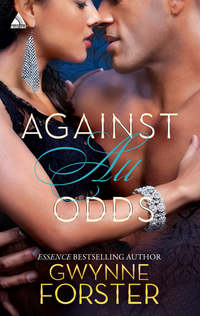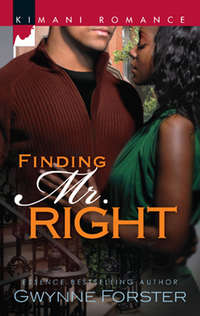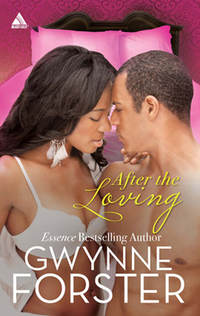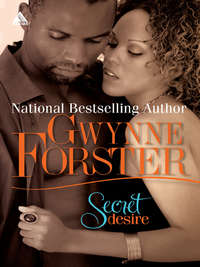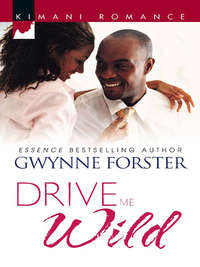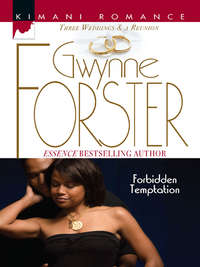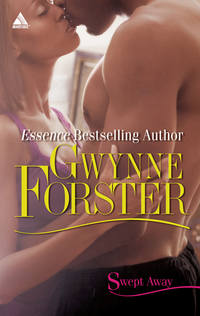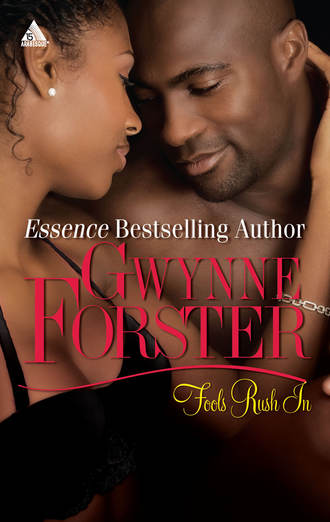
Полная версия
Fools Rush In

Fools Rush In
Gwynne Forster

www.millsandboon.co.uk
To my husband, whose love and unfailing
support sustain me and enrich my life, and to
Karen Thomas, my editor, whose helpfulness,
competence and upbeat approach make writing a
pleasure and deadlines a less ominous thing.
Contents
Chapter 1
Chapter 2
Chapter 3
Chapter 4
Chapter 5
Chapter 6
Chapter 7
Chapter 8
Chapter 9
Chapter 10
Chapter 11
Chapter 12
Chapter 13
Chapter 14
Chapter 15
Chapter 1
Justine let the white vehicle take her weight as she stood alone at the edge of the crowd, staring at the gutted Falls Church, Virginia motel in which, hours earlier, her faithful and loving husband of four years had perished with his white mistress. Perspiration matted her hair even as she tightened her jacket against the early fall chill. Her dry, tearless eyes stung their sockets as she gazed at the burned-out ruin still ripe with the smell of singed carpet, incinerated furniture, odoriferous rubbish, and charred flesh. Shivers coursed through her at the sight of the smoke-darkened glass and fragmented windows. Blackened bricks that had once gleamed red in the sunlight mocked her with their message of gloom and death.
“They shore musta been busy,” a female voice declared, “if they was the only ones in there that couldn’t hear the fire alarm.”
“You tell it, girl,” another agreed.
The only love she had even known. Why couldn’t she cry? Echoes shouted at her from the black ruins that jeered contemptuously at her. “Love ya, Baby!” He said it that way every time he left her. “You be ready for me, Baby.” She opened the crumpled note that he’d left tacked to the refrigerator and read it again. “Sorry I couldn’t reach you at work, Baby, but the company’s got an emergency of gargantuan proportions, and I’m on my way to Boston to straighten things out. May take a couple of days, but I’ll call you. Explain it all when I get back. You be ready for me. Love ya, Baby. Your devoted husband, Kenneth.” Boston! And here he was, dead in a Falls Church, Virginia motel.
She looked up and stared in horror as men approached her wheeling gurneys carrying one long, black plastic bag and one shorter bag, each tied securely. Dazed, she would have touched the remains of her husband if an ambulance worker hadn’t jumped between her and the lifeless object. Her fist pummeled the man’s chest until he held her hands to restrain her and folded her shaking form to his body until she gained control. She looked at the note, read it again, shredded it into bits, and let the wind have it. Then she turned from the horrifying scene where Kenneth Montgomery had perished with his lover, rested her hand on her belly—distended with their eight-months-along unborn child—and walked away. Thirty-five minutes later as she drove the Ford Taurus home, the first pains of a premature birth began….
Justine’s screams awakened her, and she sprang forward in bed, tugging the sheet to her as though to protect herself, and gazed rapidly around her bedroom. It wasn’t a dream. If only it was. If only that morning had never been, and she could sleep through one night without reliving it exactly as it had occurred that awful day. For nearly twelve months, that scene had been her constant companion, filling her thoughts during the day and her dreams at night. She wiped the perspiration from her face with her left hand and shook her right fist.
“I won’t let you do this to me. I won’t let you destroy my faith in human beings. You with your goodness, your humanitarianism, and your love for the common man. You for whom I ruined my relationship with my father. You treacherous bastard. You robbed me of my child. You…
“My child. Why did I…?” She rested her head on her raised knees and folded her arms around them. What had she done? She jumped from the bed, got dressed, rushed to the social service department of the hospital in which she’d given birth, and paced in front of the door for an hour and a half until the workers arrived at nine.
Maybe if she said if often enough, they’d do something. “I want my child back. I was sick. You can’t do this to me.” Her screams reverberated through the social service department of Alexandria, Virginia’s Presidents Hospital. She tightened the woolen stole that she wore to ward off the September chill and leaned across the social worker’s desk, oblivious to the tears that wet the corners of her mouth.
“I…I’ll sue you. I’ll…”
“You signed the papers, Justine. You couldn’t stand the sight of that baby and it was our duty to protect her.”
“But I was sick, and you knew it.”
“You said you didn’t want the baby. We know you sustained an unusually deep postpartum psychosis; many women do. Some of them have killed their babies when the psychosis was a deep one like yours. We thought you’d never come out of it. A week ago, I’d have sworn you never would. Your refusal to look at the child, and your insistence that we do whatever the law allowed, left us no choice, but to do as you said. Your therapist agreed.”
She stormed out of the social service department and, nearly blinded by her tears, made her way to the maternity ward to find the doctor and nurse who had taken care of her when she developed an embolism following the birth.
“After about a week,” the nurse told her, “you became withdrawn, refused food, wouldn’t talk to anybody, and wouldn’t take the baby. You refused to take the baby with you when we discharged you. We had a conference with you and your therapist, and when the therapist asked you what you wanted us to do, you said, ‘Suit yourself.’ I’ve never known postpartum psychosis to last as long or to be as deep as what you’ve been experiencing. Look at you now. You’re a changed woman; I can see that. But it’s too late. We can’t help you.”
Nurse Jane Wilkerson watched Justine’s heavy steps as she left them. “What else could we all have done?” she asked the doctor who had joined her. “Every time she saw that child, she sank deeper into depression, screaming and crying like we were beating her. I never felt so sorry for anybody in my life.”
“Yeah. I don’t think many women could handle learning that her husband died in a tryst with a woman he’d had a steady affair with since before he met her, and especially not if she was eight months pregnant.”
“Are you saying…? You’re joking.”
“Wish I was. Alexandria’s a small town, and the upper middle-class African American community here is minuscule. Marian Iverson had been Kenneth Montgomery’s mistress for at least twelve years—since their college days, I’m told. Uninterrupted. Long before he met Justine. But he couldn’t marry a white woman and run for congress in that all-black district he claimed to represent. African-American women don’t seem able to hack that from us black guys; though, believe me, they take whoever they please.”
“Well, I’ll be. Can you beat that? I never would have thought it of him. And such a distinguished man, too.”
“Yeah. But if his wife didn’t know about it, he must have done his best to be good to her. Poor fellow just got caught.”
Jane Wilkerson adjusted a blond curl beneath her crisp white cap and walked off, more certain than ever that being single and staying that way made good sense.
Justine walked aimlessly out of the building as a white Cougar pulled up, and the Washington, D.C. license plate on another white car flashed through her mind. Eleven months earlier, she’d just left her therapy session when a man walked out of the hospital carrying a newborn baby, and the woman beside him had seemed to drag her steps. They got into a white Mercedes, and the man held the tiny form wrapped in a little pink blanket as the woman drove them away. She hadn’t associated them with her child, but the scene had made her curious about it, and she had run back inside and asked the social worker’s secretary if they’d found an adoptive family for her baby.
“Yes,” the woman had beamed, “they just left. Now you can relax and get on with your life.”
Not one emotion had made its presence felt. She hadn’t tried to understand her unusual behavior, her lack of concern that her child had a new mother. She and Kenneth had planned to have three children—one every two years—but he wasn’t there and he’d lived a lie. Every time he’d held her and made passionate love to her, telling her that he loved her, that she was his world; he’d lied. He’d made a mockery of her love. She shivered, wondering if he had laughed with his mistress about his unresponsive wife, frantic to climax with him only to have it elude her every time. If only he were alive so she could despise him!
She shook off the unpleasant memories and gathered her wits. She’d get her child back, no matter what anybody said or did. They shouldn’t have let her sign those papers, knowing she had an illness fairly common among women who had just given birth. She couldn’t undo the past, but she was back to her old self now, and getting her child would be her number one priority. Her child would be hers again. She’d find her and nobody was going to stop her from getting her back. She remembered the license plate number now—dredging it up from the bowels of her subconscious mind. At the time, she’d thought that only someone rich and famous would have the number GDB 1800. She wrote it down and headed for Indiana Avenue and the municipal building in northwest Washington.
Hours passed while first one official and then another treated her to a dose of government bureaucracy, bouncing her from office to office. Anxious and frustrated, she called one of Kenneth’s fraternity brothers in the mayor’s office and, an hour later, had the information that she wanted. That car belonged to G. Duncan Banks, an investigative reporter for The Maryland Journal, a paper in Baltimore.
She searched in the Library Of Congress, the internet, and records of the Society of Professional Journalist, learning all she could about the man whom she believed called himself the father of her child. The information she treasured most concerned his character and his address. He lived in affluent Tacoma Park, at the edge of the Maryland/District line. Now, what could she do with that information? She couldn’t drive up to his house and demand her child, because he had a legal right to the child, but he’d hear from her. And soon.
Duncan Banks stretched his long frame out on the floor beside Tonya’s crib, his mind idling while his eleven-month-old adopted daughter’s chubby brown fingers examined his right thumb. She had wedged herself so deeply into his heart that he hated being away from her. He couldn’t understand how Marie, his ex-wife, could have agreed to their adopting a child if she hadn’t wanted one. He understood her disinclination to interrupt her career as a rising criminal lawyer in order to have a baby, but it hadn’t occurred to him that she hadn’t wanted to be a mother. And she’d quickly tired of it.
“I just can’t spend the rest of my youth taking care of somebody else’s kid,” she had announced. “I’m sorry.”
Every time he thought about that night when she’d asked out, pain seared his heart. “What about the indescribable, boundless love you feel for me? Your words. What about that?”
She looked him straight in the eye—insolent as usual when caught out. “Love doesn’t conquer all, Duncan. You’re old enough to know that.”
“No, but money does. Doesn’t it? Now that I’ve paid for your law degree and your career is humming and you can support yourself in the manner to which I have accustomed you, it’s bye, bye birdie, eh?”
She had the grace to be flustered. “Don’t be crude.”
“And don’t you be so high-handed.”
She was right; love didn’t conquer all. He wouldn’t let himself think about how he’d loved her or that his heart threatened to explode in his chest And when she lowered her lashes in that way she did when she wanted to control him with her body, make him forget whatever she’d done and make love to her, he’d clenched his fist.
Her lashes swept down over her large brown eyes—eyes that made a man stare at her beautiful brown face—and then came up slowly. “I’m not planning to ask for much of a settlement.”
“Smart girl. Collect your clothes. If you ask for more, I’ll take back that mink. Trust me.” He looked away to hide from her the pain he knew his face reflected. He’d loved her—really loved her with every atom of his being. “If you’re going, Marie, don’t draw it out.”
Three hours later, the door had closed on his dreams. But what the hell! The day before yesterday, he’d shot a perfect game of pool. From now on, nothing would surprise him.
For months, he had sensed a widening rift between them, a drifting away from each other, though he’d done everything he could think of to turn their relationship around. Nothing he did had touched her. He had thought that a baby would bring them closer. He wanted a family, and if she didn’t want the burden of bearing their own he’d take what he could get. Many babies needed parents he’d told her and she had agreed to their adopting Tonya. He’d been satisfied so long as he had a child to love and to raise. But he couldn’t take care of an eleven-month-old baby girl.
Duncan pulled his mind back to the present, got off the floor, and leaned over Tonya’s crib. “I’ll advertise for a wife,” he told his laughing daughter. “If the woman’s intelligent, loves children, and promises to spend the rest of her life being sweet to you, that’s as much as I want; I’ve had it with love—biggest hoax ever foisted on a man.” She raised her little arms to him, and he lifted her into his embrace.
“Daaaaddy,” she sang, clapping her little hands together. He sat with her in the rocker beside her crib and rocked her while he sang Brahms Lullaby, her favorite song. When she fell asleep, he put her into the crib and rolled it into his office so that he could work and keep an eye on her.
He had no luck advertising among his friends. Dee Dee Sharp, the feature editor of The Maryland Journal, told him she could get him someone to keep the baby, that she only had to drop a hint and even society women might show up if they knew he was single. He shook his head and went on to Wayne Roundtree’s office. Wayne owned the paper.
“Get a wife,” Wayne advised. “Tell her you want a marriage of convenience. You’ll take care of her and she’ll take care of your child. No emotional involvement.”
Duncan’s look of incredulity brought a wicked grin from Wayne. “Who’d fall for that?” Duncan asked him. “She’d have to be ninety and have all the beauty of a wet field mouse.”
Wayne leaned back in his high-back swivel chair. “Wake up, man. A lot of women would like a soft life, especially if they’re childless, out of work, down on their luck, jilted maybe, and—”
“Naaah, man, I can’t hack that.”
“But you said you’d had it with women. This way, your emotions won’t get you in trouble, and you might luck up on a great gal.”
“Is that you talking? I didn’t think you believed there was such a woman.”
“No? Well, that shows how well informed you are. Think about it.”
“Man, I haven’t the slightest notion how to go about a crazy thing like that.”
“Why not ask Dee Dee to stick a line in her column. Trust me, you’ll spend the next six months interviewing twelve hours a day.”
“Heaven forbid.” He passed Dee Dee on the way out of the building and wished he could close her grinning mouth. “The boss told me you’d be by to see me. I’ve got just the idea.”
“Do you DC ladies know that a prominent, recently divorced gentleman with the initials DB is in the market for a wife who’ll be a good mother to his baby daughter? Send your love letter to P.O.Box 0001, Washington, D.C. 20017,” Dee Dee wrote in her Thursday column. Duncan read it the next day and considered moving to Alaska. Letters arrived by the dozens and, though the procedure embarrassed him, he interviewed applicants, but didn’t like any of them.
“Maybe getting a nanny is easier,” his best friend, Wayne Roundtree suggested several weeks later. “Marriage can be such a permanent thing, man. Get a good nanny.”
“To sleep in and take over my house? No thank you.”
Wayne shrugged. “What have you got now? A cleaning woman who comes in every day at a time of her choice, leaves when she gets ready, won’t answer the phone, and avoids anything that isn’t six feet tall, male, and human.”
Duncan couldn’t help laughing. “Mattie’s a real number, but I’m used to her and when I need her in a pinch to look after Tonya, she doesn’t let me down. Besides, Tonya never stops laughing when she’s around Mattie.”
Wayne’s left eyebrow went up. “Big deal. Neither do I. Tonya probably thinks Mattie’s an oversized rag doll. Every time she looks at the woman, she’s seeing a different color of hair.”
Duncan’s white teeth flashed against his dark face. “Took me a while to look at her and keep a straight face, but she’s good as gold.” He walked over to the big picture window with its tinted glass and ecru curtains and looked down on Charles Street. His hand fingered the change in his right pants pocket. Maybe a nanny was best. He didn’t really want to be married. Not then. Not ever again. But Tonya needed a mother on whom she could depend, not a nanny who might leave at a minute’s notice.
He whirled around and started out of Wayne’s office. “Man, I don’t care who decorated your office, it would look a lot better without these fancy curtains.”
“No argument here. My sister-in-law found me a decorator, and that’s what she put there.”
“You mean Adam’s wife?”
“Who else? Adam’s my only brother. He’s a lucky man. Our families strew their path with one obstacle after another, but they persevered. She was made for him. You and I should be so lucky. Forget about that wife business, and hire a nanny.”
“Yeah. You may be right, man.” Duncan threw Wayne a high five and headed for the heart of West Baltimore, where he put in at least a weekly appearance at CafeAhNay—a local bar, restaurant, and billiards hangout on Liberty Street—to keep up his contacts. As an investigative reporter, he needed to maintain good relations with his sources.
Several days later, Mattie stopped Duncan when he walked into the house after work. “Mr. B, you know I think you’re a good man, but you also know I don’t do no full time housework and no babysitting. I just been doing all this work ’round here to help you out. And I’m good and sick of all these women that’s started calling here axing about you. It ain’t my business, but having all these women chase you ain’t a proper atmosphere for a baby girl. A sweet little tyke, she is, too. All the same, Mr. B, you know me and phones don’t get along. I wish you’d get a nanny for Tonya. I’ll help you out, but I ain’t happy doing it.”
He patted her shoulder “I’ve decided to do that, Mattie. Just bear with me.”
He stared at her two front teeth, a perfect tribute to Bugs Bunny. “Mr. B, there ain’t a woman nowhere what can resist you when you looks helpless like that. If I wasn’t old enough to be your mother, and if I didn’t have my Moe, I’d be in trouble. You make sure you get somebody me and Tonya can get along with, now.”
“I’ll do my best,” he said and rushed past her to find a place where he could laugh in peace. She hadn’t noticed that he had gaped at her orange hair, front teeth, red lips, and purple dress. She’d called it “looking helpless.”
Justine listed her house with a real estate agent and began packing her things. She’d leave that torture chamber in which she’d lived with Kenneth, that brick and mortar vessel of pain and horror, if she had to give it away. She couldn’t bear it any more than she could stand the pitying eyes of her neighbors and the thoughtlessness of the store clerks and delivery men who seemed to enjoy greeting her with, “So sorry to hear about Mr. Montgomery, Ms. Montgomery. It sure was a tragedy.” As if they had decided among themselves how best to remind her that her husband would be alive if he hadn’t been unfaithful to her.
She left the real estate office, bought a copy of The Washington Post at the corner drugstore, and went home, where she made a cup of coffee, went into the guest room, pulled off her shoes, and sat on the bed. She hadn’t been in the master bedroom—the den of lies whose walls probably still echoed his false shouts of ecstasy in her arms—since the day he died, and she never wanted to see the inside of it again. The cleaning woman had removed her things and had packed his and taken them away. She flipped through the want-ads to check the job offers. She had to change her life, but resuming her profession as a clinical psychologist held no interest. She sat forward, more alert than in almost a year. Duncan Banks had advertised for a nanny and had given a postal address. She knew he’d gotten a divorce. Did she dare? She rushed to the phone, ignoring his request that the application be made in writing.
“Duncan Banks, speaking.”
“Mr. Banks, this is Justine Taylor. I’d like to apply for the position you advertised in The Washington Post.”
The voice, soft and refined, set him back a bit. He expected a person applying for a job as babysitter to be somewhat raw around the edges.
“I prefer applications in writing, Miss Taylor.”
“I know, but I figured I’d get a lead on the other applicants. I need a job, and I can provide good references. If I have to sleep in, I’d like to visit your home before we talk business.”
That made sense. He gave her his address and realized that he hoped she’d suit him. “When can you come out?”
She didn’t hesitate, and he liked that. Coyness in women had always put a sour taste in his mouth. “This evening, if you’d like. Say, a couple of hours from now?”
He glanced at his watch. “Perfect. I’ll get Tonya ready for bed, but she’ll still be awake when you get here.”
Justine hung up, fell back across the bed, and kicked up her heels. She made no attempt to squelch the scream of joy that peeled from her throat. She had spoken with him, and she would see her child. She rolled over and said a prayer of thanks. She’d never wanted anything as badly as she wanted that job and the chance to nurture her own child, to know that her baby was well cared for and loved. Tonya. He’d named her daughter Tonya. She liked the name. Her heart thundered as it raced inside her chest like a runaway train. She didn’t trust herself to drive in that state. After all this time. And all the pain. Maybe she was being given another chance. She didn’t mislead herself into believing that what she was about to do was fair to herself, Tonya, or Duncan Banks, but what choice did she have? If she’d been a well woman, she wouldn’t have given up her child for adoption. As a psychologist, she understood what she’d gone through and considered herself fortunate to have survived that awful trauma. She telephoned a deacon of her church who had a notarized letter of recommendation ready for her when she stopped by his house. She’d chosen him because he knew her only by her maiden name. The nursery school at which she’d volunteered since before her marriage and where she was known as Miss Taylor provided her second reference.
She styled her hair in a French twist, and in spite of the sweltering August heat, dressed carefully in a conservative beige silk suit and olive-green blouse, added brown accessories, debated the advisability of wearing lipstick, decided to apply it, and headed for her door. The phone rang and she almost didn’t answer it fearing that Duncan Banks was calling to cancel their appointment.


